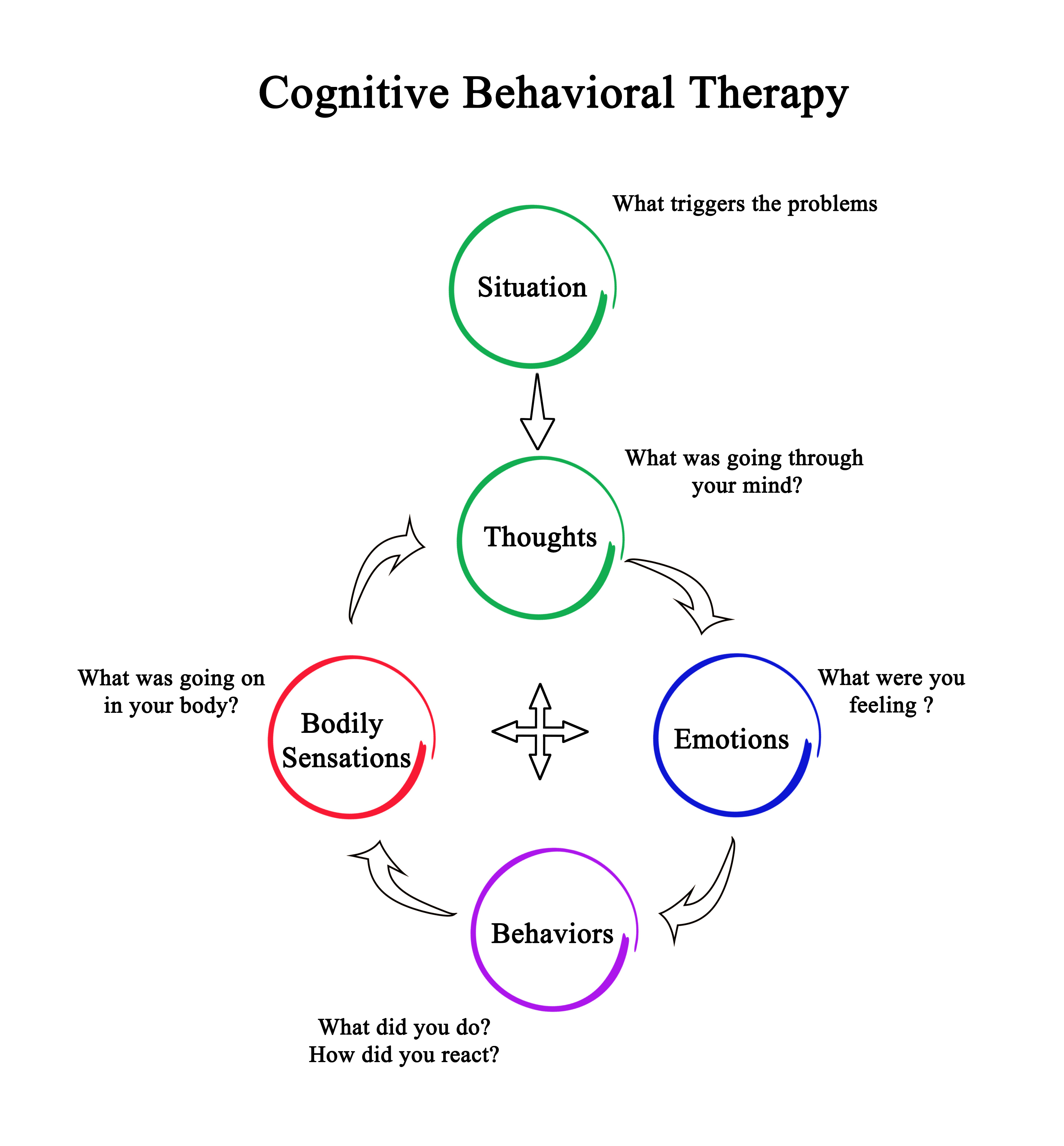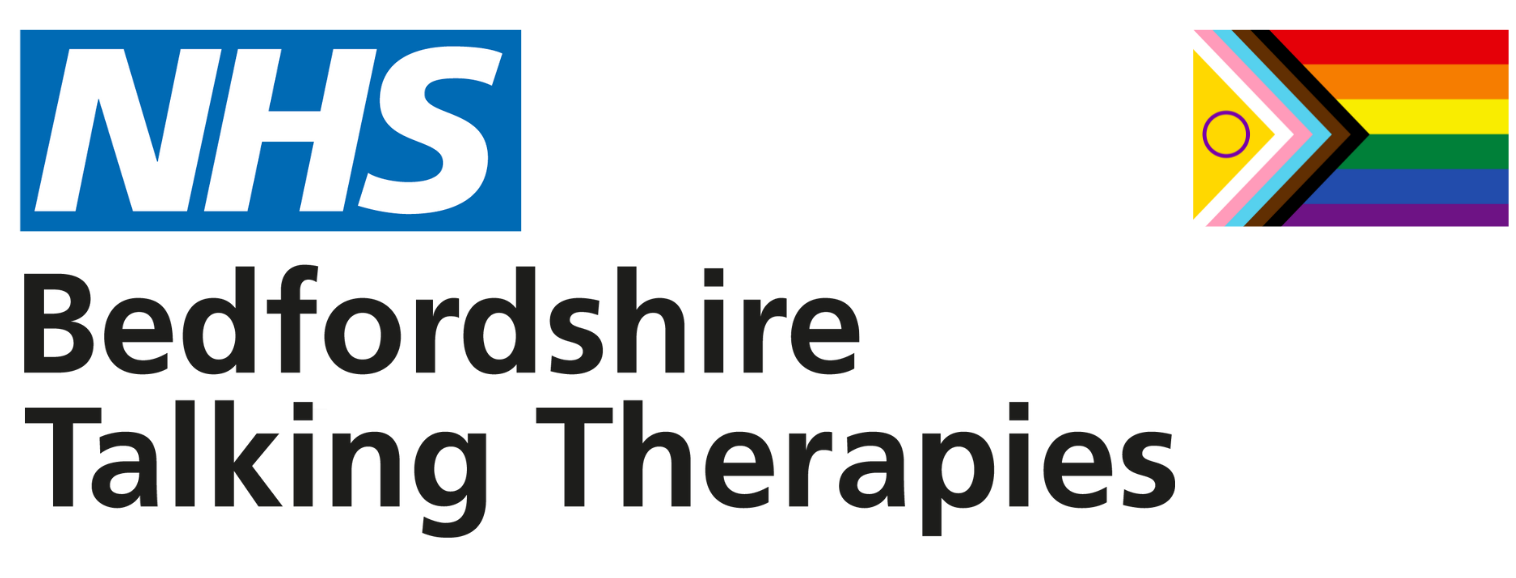Cognitive Behavioural Therapy
A CBT approach will teach you practical skills to explore the links and patterns between thoughts, feelings (emotions and physical sensations) and behaviours which can create a vicious cycle and maintain the difficulties being experienced. Generally the focus is on the here and now, rather than exploring the past, however at times our difficulties can be related to the past and may inform what is collaboratively worked on.
Throughout sessions you will be encouraged to identify thoughts, feelings and behaviours for different situations. This may be through written records in and outside of sessions, as well as to engage with planned practical exercises with the support of your therapist. Through learning different skills and techniques in a structured talking therapy approach, we can learn to challenge our thoughts and behaviours in order to have a positive effect on our feelings and future.
There is a vast evidence base that CBT is an effective treatment of depression, anxiety disorders (including phobias, generalised anxiety, OCD, panic etc) and PTSD.

